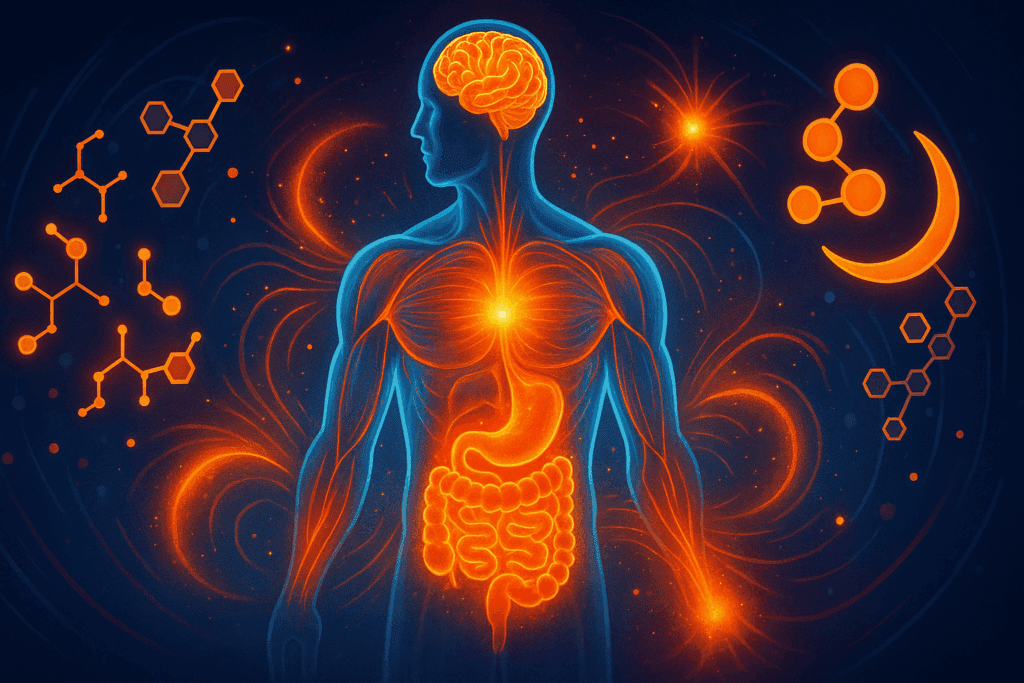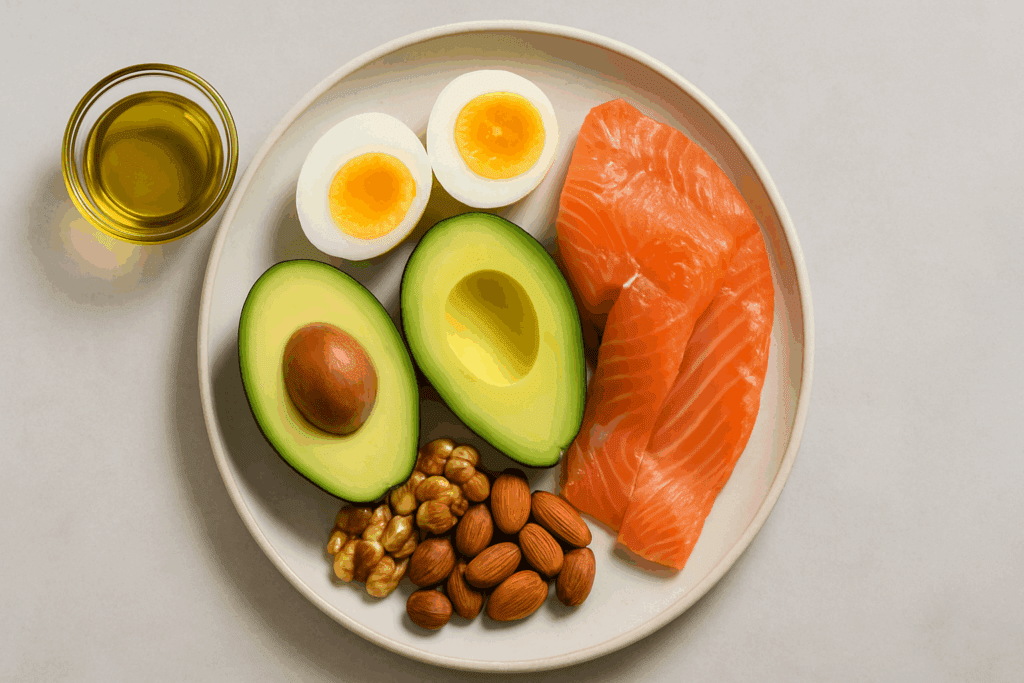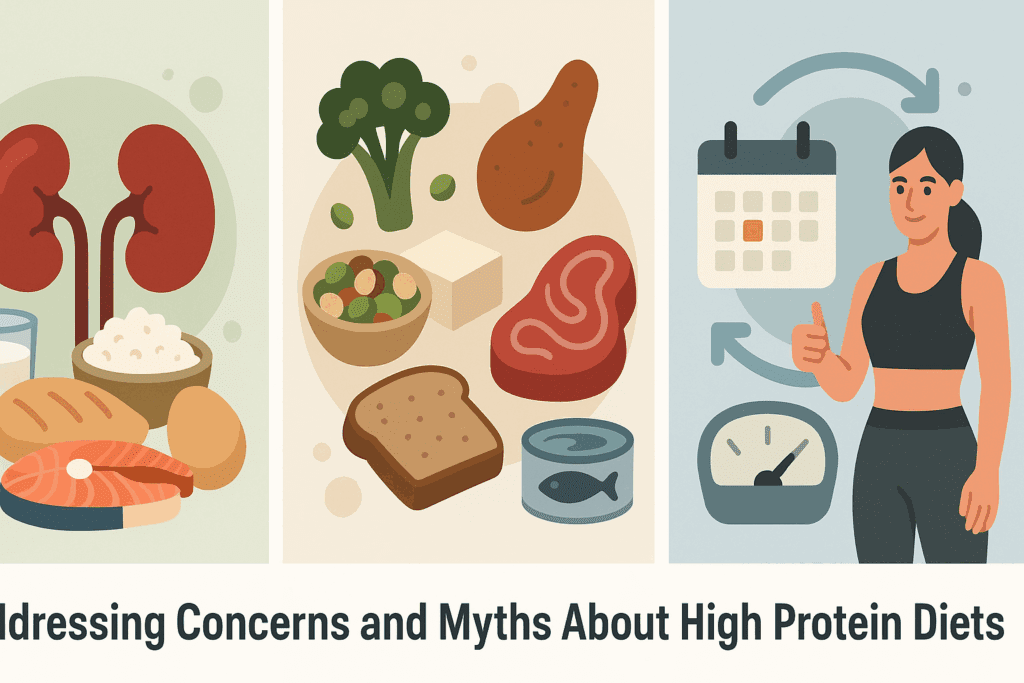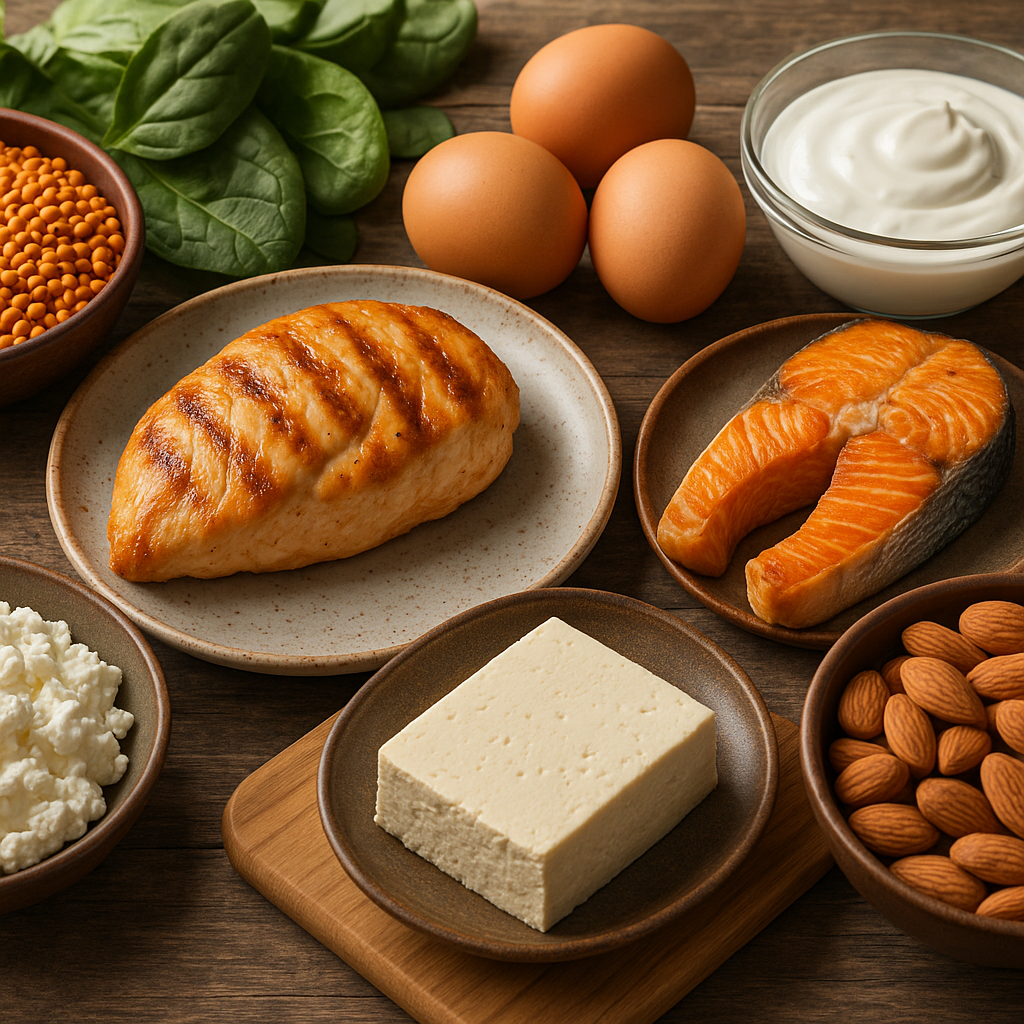In a health landscape saturated with diet trends and fleeting fads, few nutritional strategies have stood the test of scientific scrutiny as convincingly as the high-protein diet. From weight loss clinics to clinical studies, the growing body of evidence pointing to the benefits of a high protein diet continues to expand—so much so that even seasoned healthcare professionals are re-evaluating its place in modern nutrition. While many diets focus on cutting carbohydrates or fat, the increasing shift toward protein as a cornerstone of nutritional wellness has prompted a deeper investigation into its far-reaching effects. For those seeking a sustainable, science-backed path to better health, understanding why a protein-rich diet may be more effective than traditionally recommended eating plans could be the key to long-term success.
You may also like: Macronutrients vs Micronutrients: What the Simple Definition of Macronutrients Reveals About Your Diet and Health
Protein is no longer viewed solely through the lens of athletic performance or muscle building. It has emerged as a foundational element for metabolic regulation, hormonal balance, cellular repair, immune function, and—critically—weight management. This article will explore not only the widely discussed high protein benefits but will also dive into the lesser-known yet equally compelling reasons why a higher protein intake can lead to improved health outcomes. We’ll discuss the pros of protein consumption across different life stages, the physiological effects of protein intake on health, and why protein is important for weight loss in ways that extend well beyond simple calorie counting.
As our understanding of nutritional science continues to evolve, so does our appreciation for the complex interplay between macronutrients and bodily systems. In the case of protein, this complexity is increasingly viewed not as a complication but as a powerful opportunity. Let’s explore how the science of protein meets the practical realities of healthy living—and why high protein diets are more than just a trend.

The Science Behind Protein and Metabolism: Understanding Its Multifaceted Role
Protein is composed of amino acids, which are often described as the building blocks of life. These amino acids are essential for the synthesis of enzymes, hormones, neurotransmitters, and the structural components of tissues throughout the body. Beyond its structural role, protein serves as a dynamic agent in metabolism. Digesting and metabolizing protein requires more energy than fats or carbohydrates—a phenomenon known as the thermic effect of food. This means that your body actually burns more calories just by processing protein, making it a valuable ally for those looking to create a sustainable calorie deficit.
Furthermore, the effect of protein intake on health extends beyond metabolism into satiety and appetite regulation. Multiple studies have shown that higher protein intake leads to increased feelings of fullness, which can reduce overall caloric consumption without the discomfort often associated with dieting. This is one reason why the benefits of a high protein diet are frequently associated with improved weight control, particularly in individuals prone to snacking or overeating.
Importantly, protein also helps preserve lean muscle mass during weight loss—a crucial factor often overlooked in calorie-restrictive diets. Without adequate protein, the body may turn to muscle tissue for energy, which not only impairs strength but also slows metabolism. Preserving muscle mass maintains the body’s metabolic rate and facilitates long-term fat loss, not just short-term weight reduction.

Why Protein Is Important for Weight Loss: Beyond Calorie Counting
Traditional weight loss advice has long emphasized the importance of reducing calories, but emerging research suggests that not all calories are metabolically equal. Protein-rich foods elicit a different hormonal response than those dominated by fats or carbohydrates, particularly in relation to hunger and blood sugar regulation. This highlights why protein is important for weight loss, especially for those struggling with cravings, emotional eating, or blood sugar fluctuations.
For example, protein stimulates the release of appetite-suppressing hormones like peptide YY and GLP-1 while simultaneously reducing levels of the hunger hormone ghrelin. This hormonal environment makes it easier to adhere to a calorie-controlled plan without constant mental effort. Additionally, individuals consuming higher amounts of protein tend to maintain muscle tissue more effectively, which, as mentioned earlier, plays a critical role in sustaining a higher resting metabolic rate.
In practical terms, this means that individuals on a high-protein diet often experience fewer episodes of hunger, more stable energy levels, and better adherence to their eating plans over time. Whether the goal is fat loss, metabolic health, or increased energy, protein appears to create physiological conditions that are far more conducive to sustainable results than diets dominated by simple carbohydrates or unhealthy fats.
The Pros of Protein: Benefits Across Age, Lifestyle, and Health Goals
While many associate protein with athletes or bodybuilders, the pros of protein extend to nearly every demographic. Children require protein for growth and development, pregnant individuals need increased protein to support fetal development, and older adults benefit from higher protein intake to counteract sarcopenia—a condition characterized by the loss of muscle mass with age.
Even sedentary adults or those managing chronic health conditions can benefit significantly from a protein-rich approach. For example, those with type 2 diabetes may find that a high-protein diet helps stabilize blood glucose levels. This is partly because protein has a negligible impact on blood sugar compared to carbohydrates and can improve insulin sensitivity over time when paired with reduced carbohydrate intake.
Individuals recovering from surgery or illness also experience improved healing and immune response when consuming sufficient protein. In these scenarios, the benefits of a high protein diet are not just theoretical—they are clinically measurable in faster recovery times, fewer complications, and improved quality of life.

High Protein High Fat Diets: Exploring the Nutritional Balance
While the focus of this article is protein, it’s impossible to ignore the broader dietary patterns in which high protein consumption often occurs. One such pattern gaining popularity is the high protein high fat diet, which shares similarities with ketogenic or low-carbohydrate diets. These approaches emphasize fats and proteins while minimizing carbohydrates, aiming to shift the body into a state of fat-burning known as ketosis.
Though controversial in some circles, a well-structured high protein high fat diet can be effective for certain individuals, especially when implemented under medical supervision. The key lies in selecting high-quality protein and fat sources—such as lean meats, fatty fish, eggs, nuts, seeds, and avocado—while avoiding processed or trans fats.
For individuals who do not respond well to high-carb diets, or those with insulin resistance or metabolic syndrome, this approach may offer a valuable alternative. However, it’s important to note that high fat intake is not a universal requirement for reaping the benefits of high protein diets. Rather, it is one possible variation that, when used strategically, can complement the effects of increased protein intake on health.

Protein Diet Benefits for Body Composition, Immunity, and Mental Clarity
When examining the broader spectrum of protein diet benefits, one of the most compelling aspects is its impact on body composition. Unlike diets that result in generalized weight loss—where muscle and fat are both lost—a protein-rich regimen promotes the loss of fat while preserving lean tissue. This results in a leaner, more toned physique, even in individuals who are not engaging in high levels of physical activity.
Beyond body composition, protein plays a crucial role in immune function. Antibodies, which are central to the body’s defense mechanisms, are made from protein. Consuming adequate amounts ensures the immune system has the resources it needs to fight infection and inflammation. In times of stress, illness, or post-surgical recovery, higher protein intake supports faster healing and reduced risk of complications.
Cognitively, protein is also involved in the production of neurotransmitters like dopamine and serotonin, which influence mood, focus, and mental clarity. This is a growing area of research, with emerging evidence suggesting that diets low in protein may be associated with brain fog, mood instability, or even depression. By ensuring an adequate supply of the amino acids needed for neurotransmitter synthesis, a high-protein diet may support not only physical but also mental health.
Why Might High Protein Feeds Be More Beneficial Than Previously Believed?
Historically, dietary guidelines have placed moderate emphasis on protein intake, often prioritizing carbohydrate-rich staples for energy. However, shifting patterns in disease prevalence—from obesity to diabetes to metabolic dysfunction—have prompted a re-examination of this conventional wisdom. As more clinical trials explore macronutrient distribution and its outcomes, scientists are beginning to understand why high protein feeds might be more beneficial than previously believed.
One of the key reasons lies in protein’s versatility. Unlike carbohydrates, which primarily provide energy, or fats, which support cellular structure and hormone production, protein fulfills multiple roles at once. It repairs tissue, regulates hormones, builds enzymes, and contributes to immune responses. This multifaceted nature gives protein an edge in diet planning, especially when health outcomes extend beyond mere weight loss.
Additionally, protein’s ability to blunt the glycemic impact of meals is a major advantage in today’s environment of widespread insulin resistance. By slowing the absorption of glucose into the bloodstream, protein can help mitigate post-meal blood sugar spikes—a crucial consideration for individuals with prediabetes or metabolic syndrome. This highlights another often overlooked effect of protein intake on health, especially in a population increasingly at risk for chronic disease.

Addressing Concerns and Myths About High Protein Diets
Despite the robust body of evidence supporting high protein benefits, there remain lingering myths and misconceptions about potential risks. One of the most persistent concerns is the belief that high protein diets harm the kidneys. However, research in individuals with healthy kidney function has consistently shown that higher protein intake does not lead to kidney damage. For those with pre-existing kidney disease, protein restriction may be necessary, but this is a specific medical scenario rather than a general dietary rule.
Other myths include the idea that high protein diets are inherently unsustainable or that they limit food variety. In reality, protein can be obtained from a broad array of sources, including plants, dairy, seafood, poultry, legumes, and lean red meat. By incorporating a range of these foods, individuals can enjoy a diet that is not only nutrient-dense but also flavorful and diverse.
Concerns about long-term adherence are also often exaggerated. Numerous long-term studies have demonstrated that individuals following higher protein diets report greater satisfaction, fewer cravings, and more consistent weight maintenance compared to those following low-fat or low-protein plans. The key is finding the right balance of protein within a personalized eating pattern that supports long-term goals without unnecessary restriction.

How to Safely Increase Protein Intake for Maximum Benefit
Transitioning to a higher protein diet does not require a complete overhaul of existing habits. Instead, small, sustainable changes can yield substantial benefits. This might involve starting the day with Greek yogurt or eggs instead of cereal, swapping out refined grains for quinoa or legumes at lunch, or including a lean protein source at every dinner.
For those unsure of how much protein they need, general guidelines suggest around 0.8 grams per kilogram of body weight per day for sedentary adults, with higher amounts—up to 1.6 or even 2.0 grams per kilogram—recommended for active individuals or those pursuing fat loss. It’s always best to work with a healthcare provider or registered dietitian to determine the optimal range based on individual goals, activity level, and health conditions.
Additionally, spreading protein intake throughout the day is often more effective than concentrating it in one meal. This allows for better absorption, more consistent satiety, and improved muscle protein synthesis, especially in older adults. With mindful planning and a focus on whole food sources, increasing protein can be both safe and highly beneficial.
Frequently Asked Questions: High Protein Diets for Weight Loss and Health
1. Can a high-protein diet improve sleep quality or reduce stress?
Interestingly, research has begun to explore the relationship between dietary protein and sleep quality, particularly in the context of amino acid metabolism. Tryptophan, an essential amino acid found in many high-protein foods, serves as a precursor for serotonin and melatonin—both of which play critical roles in regulating mood and circadian rhythms. This suggests one of the lesser-known benefits of a high protein diet may be improved sleep onset and deeper rest, especially when consumed at dinner. While more longitudinal studies are needed, the effect of protein intake on health may extend beyond weight loss to encompass better psychological resilience and stress management. This connection further reinforces why high protein benefits should be considered as part of a holistic approach to wellness.
2. How do high protein diets affect gut health and digestion?
Although protein is widely praised for its metabolic effects, its impact on gut microbiota is more complex. When balanced properly with fiber-rich foods, protein can support gut health by fostering microbial diversity and reducing inflammation. However, excessive intake—particularly from red or processed meats—without sufficient plant-based foods may negatively alter gut flora. This is one area where moderation and source quality are essential for maximizing the protein diet benefits without unintended side effects. As researchers continue to explore why high protein feeds might be more beneficial in personalized medicine, the gut microbiome is emerging as a crucial variable in dietary response.
3. Is it safe to follow a high protein high fat diet for long periods?
A high protein high fat diet can be sustainable and effective for certain individuals when planned carefully and monitored by healthcare providers. However, long-term adherence requires careful attention to fat quality—favoring unsaturated sources like olive oil, avocados, and fatty fish over saturated or trans fats. For people with insulin resistance or metabolic syndrome, this diet style may offer enhanced metabolic flexibility and appetite control. The key lies in understanding the nuanced effect of protein intake on health when combined with dietary fats, which can alter hormonal signaling, satiety, and lipid profiles. Ultimately, the pros of protein remain intact within such plans, provided the overall diet remains nutrient-dense and evidence-based.
4. How can high protein diets support hormonal health in women?
Hormonal fluctuations throughout the menstrual cycle, pregnancy, and menopause can dramatically influence metabolism, appetite, and body composition. Protein plays a stabilizing role by supporting insulin sensitivity, adrenal function, and thyroid hormone conversion. Additionally, adequate protein intake can help mitigate muscle loss during perimenopause and menopause, which often contribute to weight gain and fatigue. The benefits of a high protein diet in women’s health are often underestimated but are gaining recognition in endocrinology and gynecological nutrition. Understanding why protein is important for weight loss in women includes acknowledging its hormonal regulatory effects, not just its caloric properties.
5. Can high protein diets benefit individuals with neurodegenerative conditions?
Emerging research suggests that higher protein intake may support neurological health by supplying key amino acids needed for neurotransmitter synthesis and synaptic repair. In Alzheimer’s disease and other forms of cognitive decline, maintaining lean muscle mass and preventing insulin resistance—both supported by high protein diets—are increasingly recognized as preventive strategies. The pros of protein in brain health include not only structural repair but also mitochondrial support and reduced oxidative stress. While this is a developing field, the potential cognitive benefits add another layer to the growing evidence behind high protein benefits. Personalized nutrition protocols may eventually incorporate protein modulation to slow cognitive aging and improve quality of life.
6. How does protein affect athletic recovery beyond muscle repair?
Athletes often focus on protein for muscle synthesis, but the protein diet benefits extend further into injury recovery, immune defense, and inflammation regulation. After intense training, the body undergoes systemic stress, and protein helps mitigate this by supporting white blood cell production and antioxidant enzyme activity. Additionally, collagen-rich proteins—such as bone broth or gelatin—may assist in tendon and ligament repair, particularly in endurance sports. These multifaceted benefits explain why high protein feeds might be more beneficial during heavy training blocks or post-competition phases. It’s not just about hypertrophy—it’s about complete systemic resilience.
7. What psychological benefits can arise from a high-protein lifestyle?
One area gaining attention is the potential mood-enhancing effect of protein through amino acid support for neurotransmitter production. Diets rich in protein have been associated with fewer mood swings and better cognitive performance under stress, particularly in individuals vulnerable to anxiety or depression. By improving blood sugar stability, protein also helps reduce irritability and mental fatigue, offering indirect but meaningful support to mental health. This highlights the broader effect of protein intake on health—encompassing emotional as well as physiological stability. As the psychology of eating becomes more prominent in nutrition science, the pros of protein are increasingly being linked to behavioral compliance and long-term lifestyle success.
8. How do plant-based proteins compare to animal proteins in terms of benefits?
While animal proteins generally contain all nine essential amino acids in optimal ratios, plant proteins offer unique advantages such as additional fiber, antioxidants, and phytonutrients. Blending complementary sources—like rice and beans—can provide complete amino acid profiles, making plant-based approaches viable for those seeking the benefits of a high protein diet without consuming animal products. Additionally, plant proteins tend to have a milder environmental impact, aligning with sustainability goals. However, because plant proteins often have lower bioavailability, slightly higher intake may be needed to achieve similar results in muscle maintenance and metabolic support. This is where dietary strategy plays a role in maximizing high protein benefits for various dietary preferences.
9. Can high protein intake support weight maintenance after weight loss?
One of the most overlooked aspects of weight management is maintaining weight loss over the long term. Protein-rich diets have been shown to reduce the rate of post-diet weight regain by preserving lean body mass and maintaining a higher resting metabolic rate. Moreover, continued high protein intake helps suppress appetite hormones that can spike after weight loss, reducing the likelihood of rebound eating. Understanding why protein is important for weight loss also means recognizing its role in preventing relapse, not just facilitating the initial drop in weight. For many individuals, the true value lies in sustained results rather than rapid changes, which is where the long-term protein diet benefits truly shine.
10. What are the future trends in protein research and innovation?
As nutritional science becomes increasingly personalized, future developments in protein research are expected to focus on genomic responsiveness, microbiome interaction, and protein timing. For example, some individuals may genetically respond better to plant or animal proteins, or benefit more from evenly spaced protein throughout the day rather than large singular doses. Meanwhile, innovation in food technology is expanding the sources of protein to include insect-based, fermented, and lab-grown alternatives with unique amino acid profiles. These new directions underscore why high protein feeds might be more beneficial when tailored to individual physiology, lifestyle, and ethical values. As our understanding of the effect of protein intake on health deepens, so too will the variety of approaches used to leverage its power safely and effectively.
Conclusion: Embracing the Benefits of a High Protein Diet for Long-Term Health and Sustainable Weight Loss
As modern nutrition science continues to evolve, the compelling advantages of protein-rich eating have become increasingly clear. The benefits of a high protein diet reach far beyond the superficial goal of weight loss. They encompass a profound range of physiological improvements—from enhanced metabolism and body composition to stronger immune responses, better blood sugar regulation, and even improved mental clarity. When evaluating the effect of protein intake on health, it becomes evident that this macronutrient is foundational to virtually every aspect of human biology.
Understanding why protein is important for weight loss also helps reframe our approach to dieting altogether. Rather than fixating solely on calorie restriction or temporary fads, individuals can prioritize nutrient density, hormonal balance, and metabolic resilience. The pros of protein are not reserved for athletes or fitness enthusiasts—they apply to anyone seeking to optimize health, preserve lean mass, and reduce the risk of chronic disease.
Whether adopting a traditional protein-rich diet or exploring variations such as the high protein high fat diet, the emphasis should always be on balance, quality, and sustainability. And as more evidence emerges supporting why high protein feeds might be more beneficial than once thought, it becomes increasingly difficult to overlook protein’s rightful place at the heart of preventive wellness.
Ultimately, the shift toward protein-centric nutrition is not a passing trend—it’s a return to nutritional fundamentals rooted in physiology, science, and lived experience. For those ready to take meaningful steps toward lasting health, embracing the high protein benefits available through intentional dietary change may prove to be one of the most effective strategies of all.
Further Reading:
10 Science-Backed Reasons to Eat More Protein
High-Protein Diets: Do They Work?
Clinical Evidence and Mechanisms of High-Protein Diet-Induced Weight Loss


